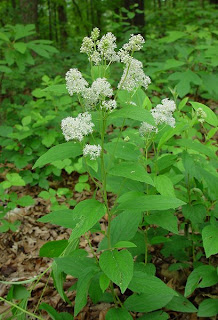PAPRIKA

Latin Name: Capsicum annuum
Family: SOLANACEAE
Parts Used: Ripe peppers.
Properties: Antibacterial, Carminative, Sialagogue, Stimulant.
Internal Uses: Hypertension, Motion Sickness, Varicose Veins
Internal Applications: Mostly used in food.
Paprika improves the health of the circulatory system by promoting elasticity of arteries, capillaries and veins. As a digestive aid, Paprika improves the secretions of saliva and stomach acids as well as increases peristaltic movements.
Paprika improves the health of the circulatory system by promoting elasticity of arteries, capillaries and veins. As a digestive aid, Paprika improves the secretions of saliva and stomach acids as well as increases peristaltic movements.
Topical Uses: Mouth Sores
Topical Applications: Gargle for mouth sores.
Energetics: Pungent, Sweet, Warm.
Chemical Constituents: Capsicum, carotenoids, flavonoids, vitamin C.
Comments: By 1560, Paprika was a popular spice in the Balkans, where it was called peperke.
The common name Paprika includes the species Capsicum tetragonum, which is used interchangeably with Capsicum annuum. The species Capsicum annuum also includes chili peppers.
The common name Paprika includes the species Capsicum tetragonum, which is used interchangeably with Capsicum annuum. The species Capsicum annuum also includes chili peppers.

